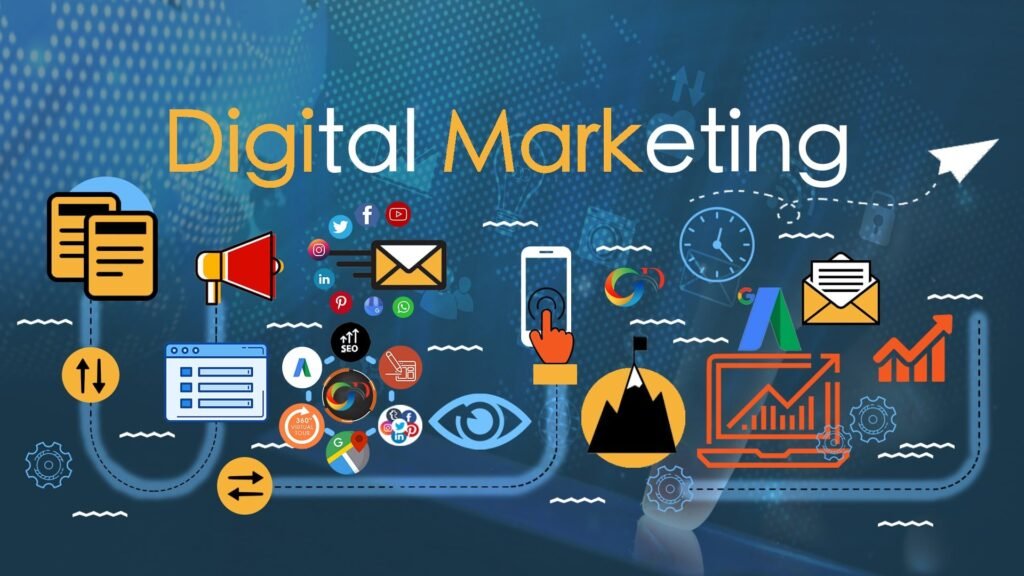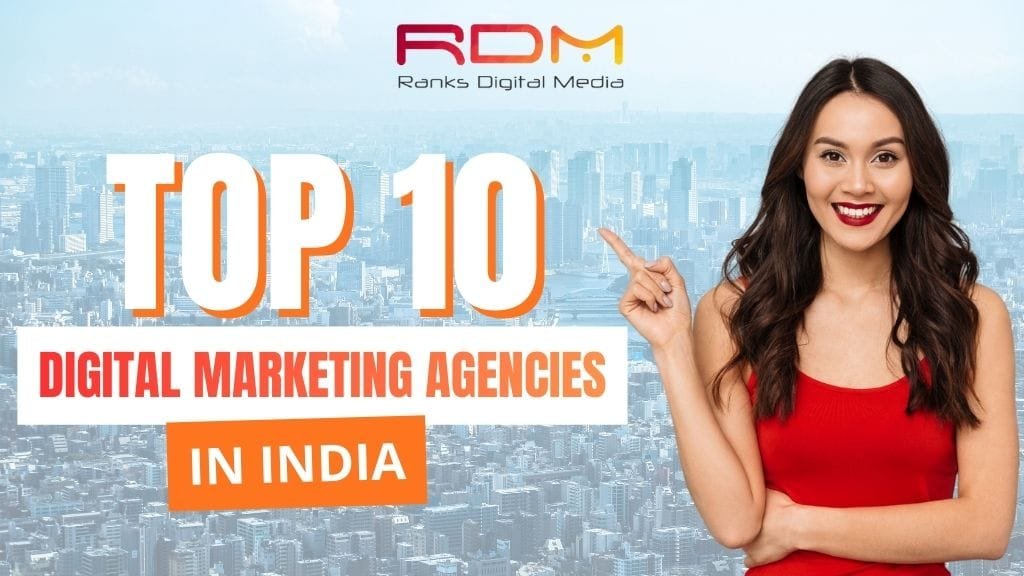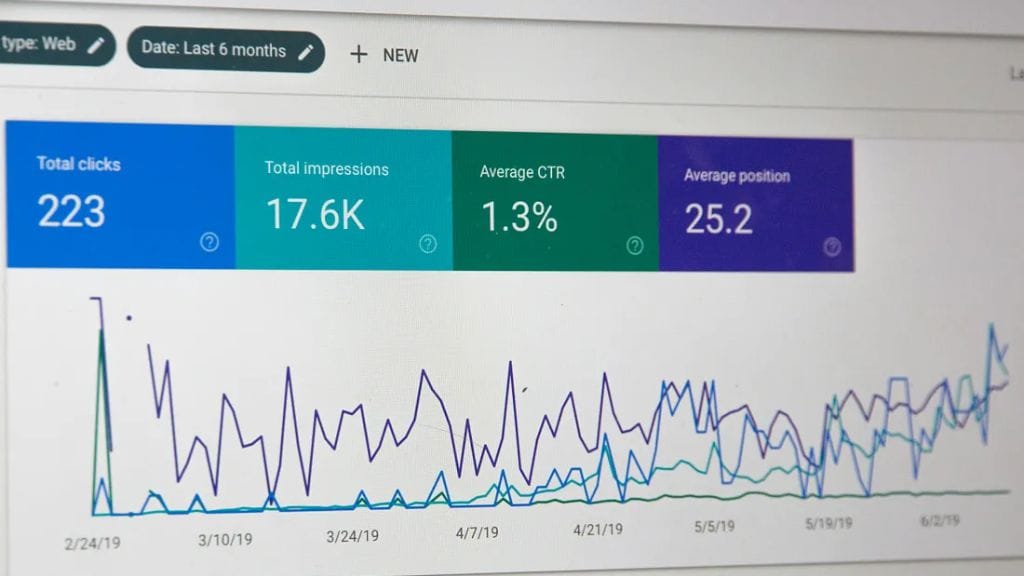In the digital age, where everything is just a click away, digital marketing has become an integral part of businesses, irrespective of their size and industry. In this comprehensive guide, we will cover everything you need to know about digital marketing, including its definition, importance, strategies, and how it can help you achieve success.
What is Digital Marketing?
Digital marketing refers to the promotion of products or services using digital technologies, such as the internet, mobile devices, social media, search engines, and other digital channels. It involves a range of tactics, such as search engine optimization (SEO), content marketing, social media marketing, email marketing, and paid advertising, to connect with potential customers and generate leads.
Importance of Digital Marketing
In today’s digital world, where people spend most of their time online, digital marketing has become a necessity for businesses to reach their target audience. Here are some reasons why digital marketing is important:
- Increased reach: With digital marketing, businesses can reach a wider audience than traditional marketing methods. By using digital channels, businesses can connect with potential customers globally.
- Cost-effective: Digital marketing is more cost-effective than traditional marketing. It allows businesses to reach their target audience at a lower cost and generate more leads.
- Measurable results: Unlike traditional marketing, digital marketing provides measurable results. With tools like Google Analytics, businesses can track their website traffic, conversions, and other metrics to measure the effectiveness of their digital marketing campaigns.
- Targeted marketing: Digital marketing allows businesses to target their audience based on demographics, interests, and behavior. This ensures that their message reaches the right audience, increasing the chances of conversions.
Digital Marketing Strategies
Now that you know the importance of digital marketing, let’s look at some strategies that businesses can use to achieve success.
- Search Engine Optimization (SEO)
SEO is the process of optimizing your website to rank higher in search engine results pages (SERPs). By improving your website’s visibility on search engines, you can attract more organic traffic and generate more leads. Some key factors that impact your website’s SEO include:
- Keyword research: Identifying the right keywords to target based on search volume, competition, and relevance.
- On-page optimization: Optimizing your website’s content, structure, and meta tags to improve its relevance and authority.
- Off-page optimization: Building high-quality backlinks from other websites to improve your website’s authority and credibility.
- Content Marketing
Content marketing involves creating and sharing valuable, relevant, and engaging content to attract and retain a target audience. By providing useful information, businesses can establish themselves as thought leaders and build a loyal customer base. Some key tactics in content marketing include:
- Blogging: Creating informative and engaging blog posts that target your audience’s interests and pain points.
- Video marketing: Creating informative and engaging videos that showcase your products or services and provide value to your audience.
- Infographics: Creating visually appealing infographics that present complex information in a simplified manner.
- Social Media Marketing
Social media marketing involves promoting your products or services on social media platforms, such as Facebook, Twitter, and Instagram. By creating engaging social media posts, businesses can increase their brand awareness, reach, and engagement. Some key tactics in social media marketing include:
- Social media advertising: Promoting your products or services through paid social media ads that target your audience based on demographics, interests, and behavior.
- Influencer marketing: Partnering with influencers to promote your products or services to their followers.
- Social media contests: Running social media contests that encourage engagement and user-generated content.
- Email Marketing
Email marketing involves sending promotional messages or newsletters to your subscribers through email. By building a targeted email list and sending personalized messages to your subscribers, businesses can increase their engagement and conversions. Some key tactics in email marketing include:
- Segmentation: Dividing your email list into targeted segments based on demographics, behavior, and interests to send more personalized and relevant messages.
- A/B testing: Testing different email elements, such as subject lines and CTAs, to determine what works best for your audience and optimize your campaigns.
- Automation: Setting up automated email workflows to send triggered messages based on user behavior and preferences, such as welcome series, abandoned cart reminders, and post-purchase follow-ups.
- Opt-in forms: Creating attractive opt-in forms on your website and social media profiles to encourage users to sign up for your email list.
- Analyzing metrics: Tracking and analyzing email metrics, such as open rates, click-through rates, and conversions, to measure the success of your campaigns and make data-driven decisions.
- Paid Advertising
Paid advertising involves promoting your products or services through paid channels, such as Google Ads and Facebook Ads. By targeting your audience based on demographics, interests, and behavior, businesses can increase their visibility and generate more leads. Some key tactics in paid advertising include:
- Google Ads: Promoting your products or services through paid search ads that appear at the top of Google search results.
- Display advertising: Promoting your products or services through display ads that appear on websites and social media platforms.
- Remarketing: Targeting users who have previously interacted with your website or social media profiles with personalized ads.
- Mobile Marketing
Mobile marketing involves promoting your products or services to users on mobile devices, such as smartphones and tablets. By optimizing your website and ads for mobile devices, businesses can improve their user experience and generate more leads. Some key tactics in mobile marketing include:
- Mobile-friendly website design: Creating a responsive website that adjusts to different screen sizes and resolutions.
- Mobile apps: Creating a mobile app that provides value to your users and promotes your products or services.
- SMS marketing: Sending targeted text messages to your subscribers to promote your products or services and generate leads.
Conclusion
Digital marketing is a dynamic and ever-evolving field that offers endless opportunities for businesses to reach their target audience and achieve success. By using the right strategies and tactics, businesses can increase their visibility, generate more leads, and establish themselves as thought leaders in their industry. Whether you’re a small business owner or a marketing professional, digital marketing is a powerful tool that can help you achieve your goals and take your business to the next level.






